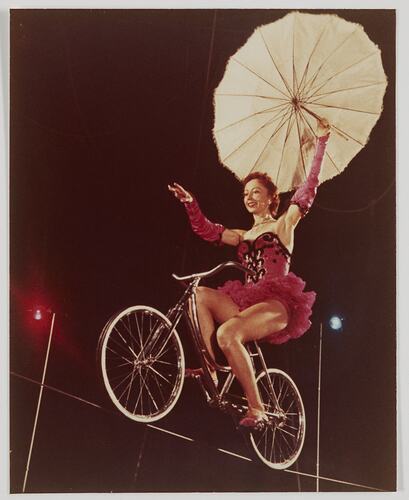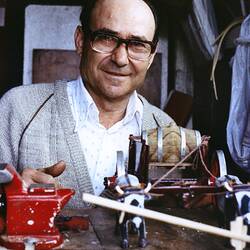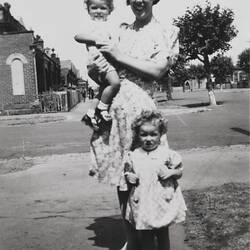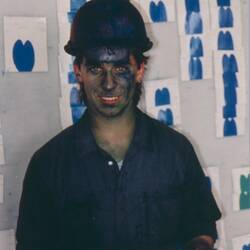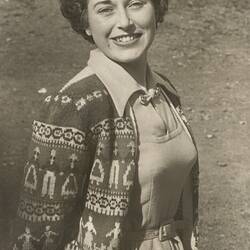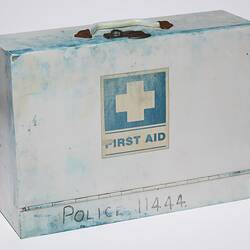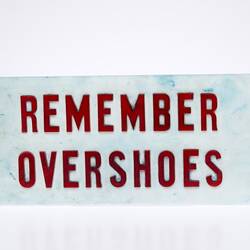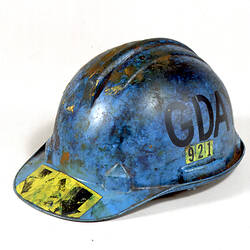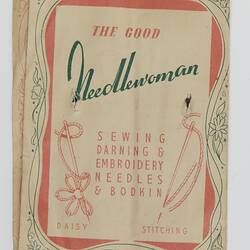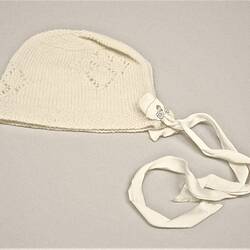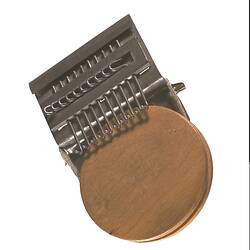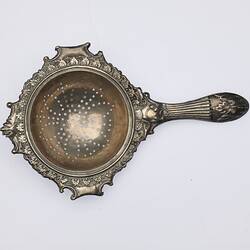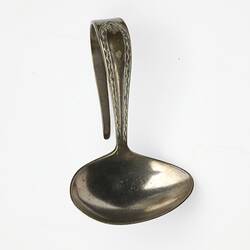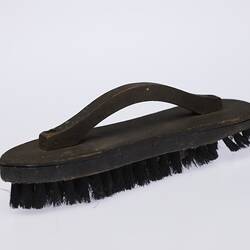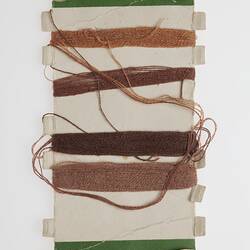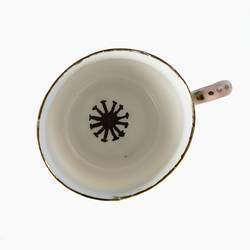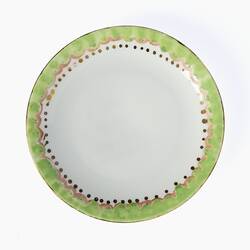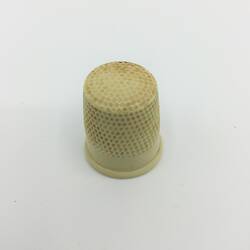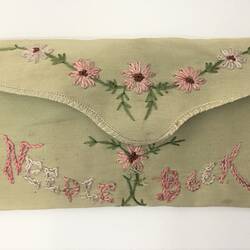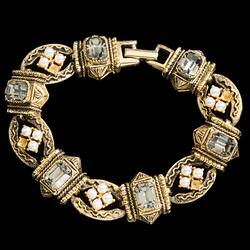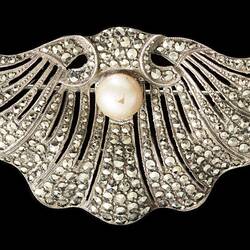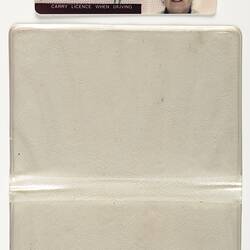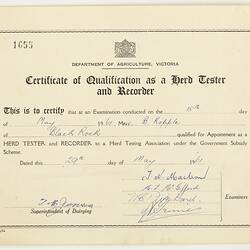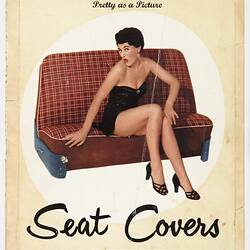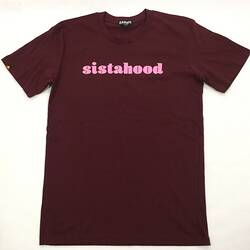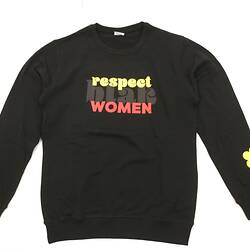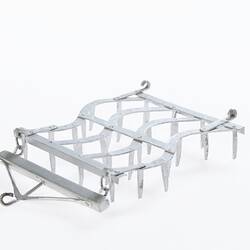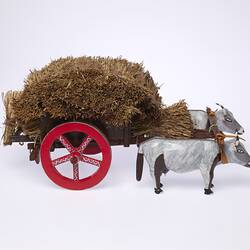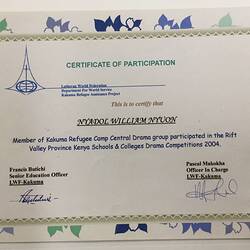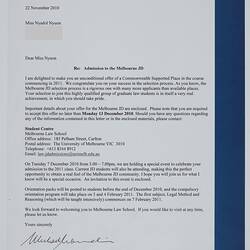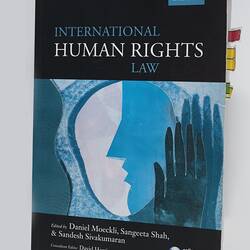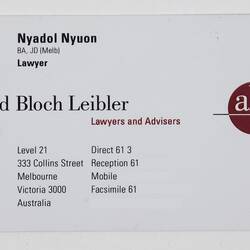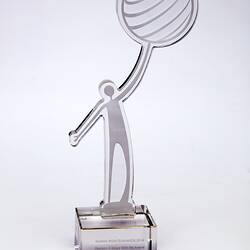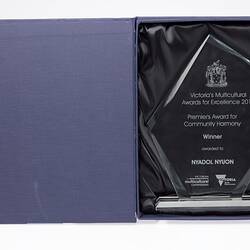Summary
Today, work remains a cornerstone of identity for many of us. Yet the ways we think about work continues to evolve and this is reflected in the Museum's collections.
Eight hours to work,
Eight hours to play,
Eight hours to sleep,
Eight bob a day.
A fair day's work,
For a fair day's pay.
[19th century workers' ditty]
In 1856 Melbourne stonemasons successfully campaigned for a better work-life balance and a fair day's pay. Some things never change.
Today, work remains a cornerstone of identity for many of us. Yet the ways we think about work continues to evolve, with the rise of the gig economy, decline of certain industries, (some) recognition of unpaid work, and working from home.
The Museum's collection holds tens of thousands of objects and images relating to the working lives of Australians across time and workplace. These objects and images show some of the ways work in Victoria has changed since the late 19th century. There is the rise and fall of manufacturing, and growth of service industries; changes in health and safety, technology, and the casualisation of the workforce; and the impact of globalisation, migration and changing demographics. The collection has a long way to go in representing the complexity of working life across time.
The stories featured here were on display at the Immigration Museum from October 2022 - March 2023 in an installation entitled My Working Life: Stories From the Collection. They reveal how the answers to the commonly asked question 'What do you do?' are never simple. It is about more than being a farmer, snake dancer, process worker, fashion designer, home worker, or lawyer.
Work can shape and share ideas of community, gender, memory, creativity, sexuality, activism, ethnicity, and our sense of individual and collective value. Work also acts as a thread that connects us to people, places, and other times. For some, work extends and celebrates the way we see ourselves, creates spaces to be ourselves, and provides platforms to advocate for issues that are important to us. For others, work is something we have to do. To pay bills and put food on the table or provide care for family and ourselves. Work can also be what we cannot do, or no longer do.
Explore these feature stories which represent both historical and contemporary collecting activity by the Museum. Search using the keyword 'work' and many more stories can be discovered.
More Information
-
Keywords
-
Authors
-
Article types
